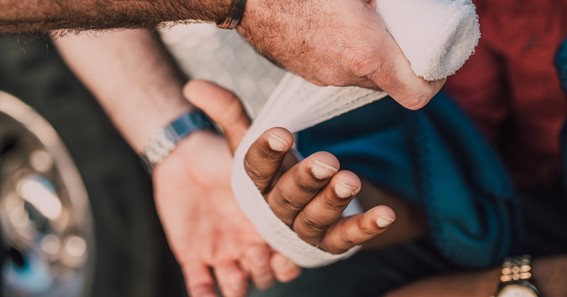A dog bite can be a painful experience with long-lasting emotional and psychological repercussions. To regain a sense of security and well-being, trauma recovery is essential. This article will examine eight practical methods for assisting people in getting over the trauma of a dog bite.
Acknowledge and Validate Your Emotions
Recognizing and validating your feelings is the first stage in the rehabilitation process. After a dog bite, it’s common to experience fear, worry, rage, or grief. Allow yourself to experience these feelings and recognize that they are a normal reaction to a distressing incident. Allow yourself to communicate your feelings by writing in a diary, speaking with a reliable friend, or indulging in artistic or musical endeavors.
Seek Professional Help
Consider getting professional assistance if dealing with the emotional fallout from a dog bite proves difficult for you. A mental health expert who has dealt with trauma can offer helpful advice and support. They can support you while you strive toward healing and rehabilitation, process your feelings, and create coping mechanisms. Therapy sessions can provide a secure setting to examine your emotions, understand your responses, and discover efficient ways to control anxiousness or symptoms of post-traumatic stress disorder.
Get Legal Support
Hiring a personal injury lawyer with experience in dog-bite cases can help reduce some of the stress and load if you deal with legal issues relating to the dog bite. A knowledgeable California personal injury lawyer, for example, can help you navigate the legal system, defend your rights, and assist you in seeking restitution for your losses. By speaking with a legal expert, you can better understand your rights and alternatives for pursuing redress for the dog bite event. You will be helped in navigating the legal system’s complexity and arguing for your best interests with their assistance.
Educate Yourself About Dog Behavior
Understanding canine behavior better can help reduce worries and anxiety about coming into contact with dogs in the future. You may feel more empowered and in control around dogs by being aware of their body language, warning indications, and proper interactions. Learn more about dog behavior by reading books, using reliable websites, or enrolling in classes. This information will give you the skills to understand dog behavior and react effectively, lowering your anxiety and increasing your sense of security.
Practice Relaxation Techniques
Utilizing relaxation techniques can assist in reducing tension and anxiety brought on by the trauma of the dog bite. Deep breathing exercises, gradual relaxation of muscles, and meditation are all useful techniques to induce relaxation and lessen feelings of discomfort. Use these methods as part of your regular practice to aid your recovery. Find a calm and relaxing place where you can spend a few minutes every day practicing these skills.
Create a Support System
Creating a solid support network is essential during the healing process. Contact those in your circle of relatives, close companions, or support who can provide sympathy, comprehension, and inspiration. It is helpful to share your stories with people who went through similar events to lessen feelings of loneliness. Consider joining a nearby support group or online forum where you may meet people who have experienced similar things.
Practice Gradual Exposure to Dogs
Introduce yourself to dogs progressively in safe settings if you’re ready and comfortable. Begin by engaging with amiable, well-behaved dogs while being watched by their owners or a qualified dog trainer. Over time, this incremental exposure can help restore trust and lessen fear. Start by keeping a distance and work to being in the same room as a calm, familiar dog. You may progressively raise your degree of contact as you get more at ease while always putting your well-being and security first.
Click here – The Importance of a Well-Fitting Dog Harness
Practice Self-Compassion
Be patient and understanding with yourself as you work through the rehabilitation process. Know that recovery takes time and obstacles are a normal part of the path. The same empathy and compassion you would provide to a loved one who is experiencing a tough period, offer to yourself. By identifying your suffering and affirming your experience, practice self-compassion. Be kind to yourself, comfort yourself, and support yourself as you go through the recovery process. Also, be patient with yourself.
Conclusion
Patience, effort, and self-care are required to heal from the trauma of a dog bite. You can recover from this trauma by being aware of your feelings, getting professional assistance, learning about dog behavior, cultivating self-compassion, and, if necessary, getting legal assistance. You can recover from trauma and reclaim your feeling of safety and well-being with the correct tools, guidance, and support.
